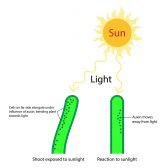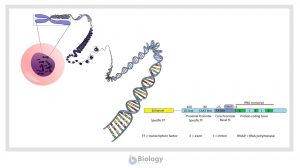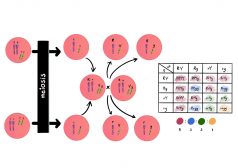Definition
noun, plural: hnRNAs
The abbreviated form for heterogeneous nuclear ribonucleic acid: an extrachromosomal RNA molecule in the nucleus that serve as primary transcript from DNA
Supplement
The hnRNA is the collective term for the unprocessed mRNA (pre-mRNA) molecules in the nucleus. It is largely comprised of the pre-mRNA molecules that require extensive processing to become mature mRNA molecules. The hnRNA that is associated with proteins form the heterogenous nuclear ribonucleoprotein (hnRNP).
The initial step of synthesizing mRNA is transcription. During transcription, the DNA sequence is read by RNA polymerase in order for the latter to create a complementary, antiparallel RNA strand (called primary transcript). The primary transcript that later becomes a messenger RNA (mRNA) is referred to as a pre-mRNA. The pre-mRNA, in turn, needs to undergo further processing to become a functional mature mRNA.
A pre-mRNA molecule becomes a mature mRNA molecule after having undergone the following processes:
- 5′ cap addition – the addition of a 5’cap to the front or 5′ end of the pre-mRNA molecule at the start of transcription
- splicing – removal of any introns (non-coding sequences) and the splicing together of exons (protein-coding sequences)
- editing – in some instances, the nucleotide composition is altered
- polyadenylation – a poly a tail is added to the free 3′ end at the cleavage site
Once these processes are completed the mature mRNA can then be transported from the nucleus into the cytoplasm for protein translation.
Although the hnRNA serve as source of mRNA, not all hnRNA become cytoplasmic mRNA.
See also:
- pre-mRNA







